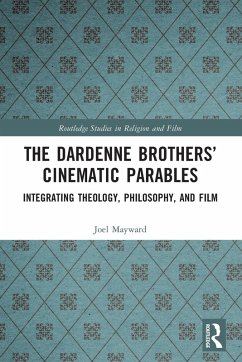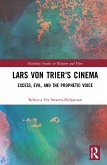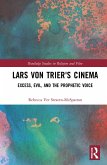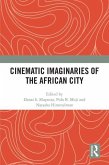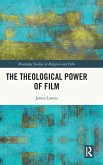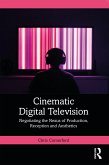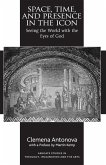The Dardenne Brothers' Cinematic Parables examines the work of Belgian filmmakers Jean-Pierre and Luc Dardenne, who have been celebrated for their powerfully affecting social realist films. Though the Dardenne brothers' films rarely mention religion or God, they have received wide recognition for their moral complexity and spiritual resonance. This book brings the Dardennes' filmography into consideration with theological aesthetics, Christian ethics, phenomenological film theory, and continental philosophy. The author explores the brothers' nine major films-beginning with The Promise (1996) and culminating in Young Ahmed (2019)-through the hermeneutics of philosopher Paul Ricoeur. By using Ricoeur's description of "parable" as a "narrative-metaphor" which generates an existential limit-experience, Joel Mayward crafts an innovative Ricoeurian hermeneutic for making theological interpretations of cinema. Drawing upon resources from three disciplinary spheres-theology, philosophy, and film studies-in a dynamic interweaving approach, Mayward proposes that the Dardennes create postsecular cinematic parables which evoke theological and ethical responses in audiences' imaginations through the brothers' distinctive filmmaking style, what is termed "transcendent realism." The book ultimately demonstrates how the Dardenne brothers are truly doing, not merely depicting, theology and ethics through the cinematic form-it presents film as theology, what Mayward refers to as "theocinematics." This is valuable reading for scholars of theology, philosophy, and film studies, as well as film critics and cinephiles interested in the cinema of the Dardenne brothers.
"Combining expert film analysis with philosophical sophistication and theological depth, Joel Mayward's theoretically grounded and elegantly argued volume makes an innovative contribution to the conversation between film, philosophy and theology. His theocinematics, developed in close engagement with the films of the Dardenne Brothers, recognizes their original contributions to theological and ethical questions of guilt, redemption, spiritual formation, the meaning of human existence, and hope. A wonderful read for all those interested in the rich cinematic oeuvre of the Dardennes, and the theological and philosophical potential of cinema." - Stefanie Knauss, Villanova University, USA
"An extensive, theologically-sensitive, yet cinematically-informed treatment of the Dardennes' filmography is long overdue. Joel Mayward delivers that, here, by staging a wide and generous conversation between prominent thinkers in philosophy, film studies, and theology. Additionally, through a meticulous examination of the relationship between film and theology, he spells out why the cinema continues to be a resource for spiritual vitality, amid the aggressive currents of dehumanization." - Joseph G. Kickasola, Baylor University, USA
"An extensive, theologically-sensitive, yet cinematically-informed treatment of the Dardennes' filmography is long overdue. Joel Mayward delivers that, here, by staging a wide and generous conversation between prominent thinkers in philosophy, film studies, and theology. Additionally, through a meticulous examination of the relationship between film and theology, he spells out why the cinema continues to be a resource for spiritual vitality, amid the aggressive currents of dehumanization." - Joseph G. Kickasola, Baylor University, USA

